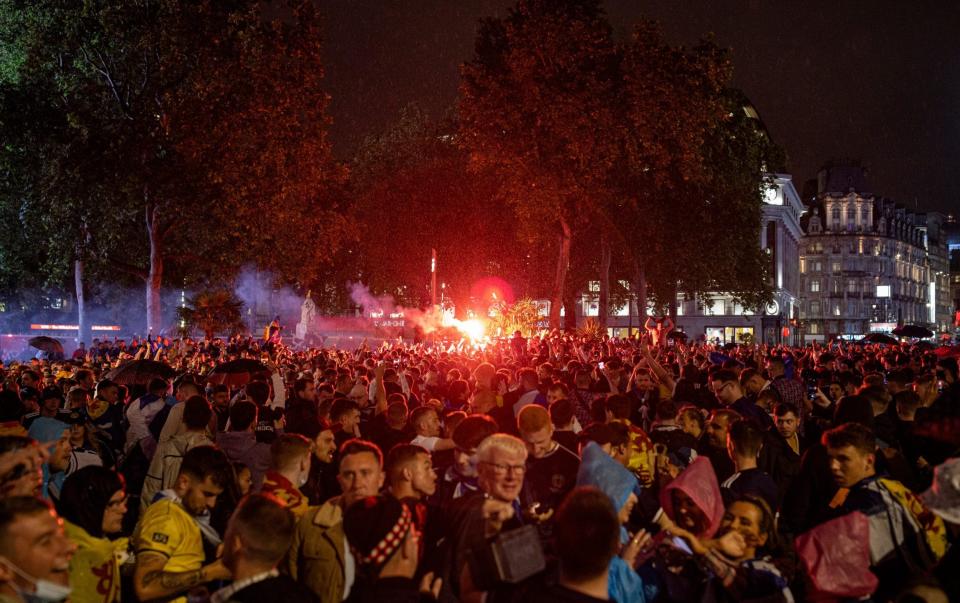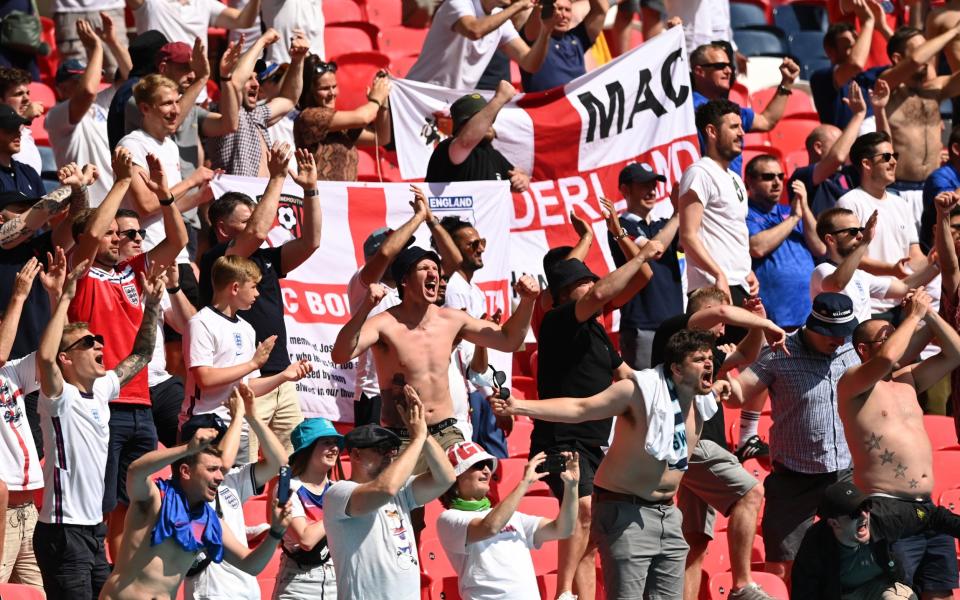Sport cannot think it is from another planet – Covid warning signs must be heeded

If there has been one persistent lesson through the Covid-19 pandemic, it is that a head rooted in the sand can simply mean a more severe problem once daylight is faced.
And sport which, after a bumpy start, has been on a generally safe and responsible path to normality has warning signs again flashing in its face.
That one player at Euro 2020 should test positive for Covid-19 is not in itself a surprise and, if the spread can be contained to Billy Gilmour, will actually demonstrate the efficacy of regular PCR tests. Yet what we can question is why Mason Mount and Ben Chilwell would drop their guard and put themselves at an unnecessary risk of being deemed close contacts in a way that would have been unthinkable earlier in the pandemic.
Or, for all the welcome sight of crowds at these European Championships, whether it made much sense for thousands of ticketless fans to party through central London before Friday’s England vs Scotland match. Or, ignoring wider guidelines once inside Wembley Stadium, notably the face-mask requirement, is currently the best way for sport to navigate its delicate reemergence.
No-one wants unnecessary restriction, especially with such encouraging signs that the link between Covid cases and more severe disease is gradually breaking, but sport is not detached from the range of inconvenience, sacrifice and tragedy still being faced.
Anecdotal reports of positive Covid-19 tests among people inside the melee of football fans in London on Friday night are already emerging. And the knock-on of every new infection is the likely combination of yet more school days missed, work cancelled and a longer wait for further freedoms to return.

There is also a selfish and practical imperative for the sports themselves. Italian Prime Minister Mario Draghi has already been suggesting a different venue for the Euro 2020 semi-finals and final to a country (England) where infections have been “rising quickly”. Germany chancellor Angela Merkel has now also said that these matches should not be played before “packed stadiums”. Uefa are ploughing on and have confirmed that more than 60,000 fans will be inside Wembley. Significantly, and controversially, the deal is expected to include agreement from the British government that 2,500 VIPs and foreign media can waive quarantine rules on entering the country.
Fans must still either show that they are fully vaccinated or have had a negative lateral flow test in the 48 hours before the game. Experts, though, have persistently warned that lateral flow tests have significant limitations. “The reality is we have still got to be very careful,” said Prof Denis Kinane, an immunologist whose Covid-testing company Cignpost Diagnostics has been working with a range of sports and industries. “What we have discovered is that the highly sensitive PCR tests can keep sports teams remarkably safe. You can pick out people with a small viral load before they become infectious.
“But it’s a different proposition when you have spectators. We’ve got to be getting spectators back but, in what proportion and with what provisions, are decisions to be made. We are very concerned about lateral flow tests. There’s a very tight time span.”
It does all prompt questions about the super summer of sport and how decisions now might look come September. After Euro 2020 will come Wimbledon, where there will be 50 per cent capacity through the tournament ahead of a full Centre Court for the finals.
Then there is the Challenge Cup final, international cricket and of course the Olympics and Paralympics in Tokyo and the British Lions in South Africa. As things stand, people arriving in Japan from the United Kingdom must isolate for 10 days and there is considerable public opposition to the wider prospect of welcoming around 100,000 visitors from 200 different countries.
There will be no crowds for the Lions matches and South Africa has just reported a surge in daily cases amid reports that hospitals and health workers are close to being overwhelmed.
The call is not for mass cancellations. It is simply a reminder that, however much the situation has improved in this country, a global pandemic demands certain protocols and sport cannot operate like it is from another planet.

